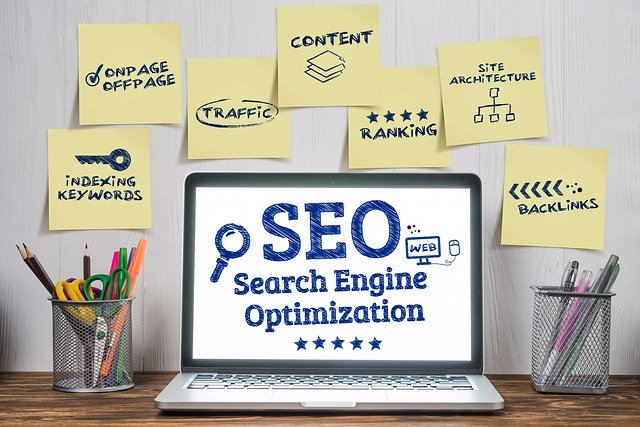SEO is a fundamental skill in a digital marketing expert’s arsenal. It might not be crucial to know the more technical aspects, but a good understanding should be imperative. Optimizing a website for organic search shouldn’t just be the responsibility of one or two people; anyone that contributes content should have input and responsibility for SEO. Given the importance of online visibility, working knowledge of SEO is becoming increasingly important. Many businesses that don’t have the resources in-house choose to outsource their SEO to a digital marketing agency that offers search engine marketing as part of their services. However, larger businesses are more likely to hire somebody in-house who comes with an arsenal of digital marketing knowledge, including SEO. If you consider yourselves as a beginner and have been meaning to learn the fundamentals of on-page SEO, then this article is a good place to start your journey.
What is SEO?
SEO is the process of optimizing a website, and its content so it can be easily found and indexed by search engines. Using this indexed content means the search engines can provide users with the most relevant websites when they make search queries. Ideally, if a website or single webpage has good enough SEO, then it will rank top in the search engine results pages (SERPs) for the searches that it’s most relevant to.
How to Make Your Website More Visible in Search Engines
The following on-page SEO techniques can help make your website more accessible to search engines and help it rank higher in the SERPs. On-page SEO is the optimization you can control to make your website more visible to search engines.
Headlines
Those are conflicting opinions when it comes to what the optimal headline length is for SEO. The best thing to do when it comes to writing headlines is to keep them concise so they can grab users’ attention. There is an often-cited rule that dictates that your headlines shouldn’t be longer than 65 characters which are about the length of a headline that Google will feature on the SERPs. But, this also includes your company or website’s name, so if you want your brand to appear after the headline, then you need to write something a little shorter than 65 characters.
Anchor Text
Anchor text refers to the text where you add an internal or external link to a piece of content. Adding descriptive anchor text helps search engines to better understand the context of a webpage’s content. It’s also really helpful for users. Some SEO professionals advise varying anchor text wording as many pages linking to a single page using the same anchor might be regarded as suspicious by the search engines.
XML Sitemap
An XML sitemap is a document that is hosted on your website’s server that lists every page. It’s a way for business owners and marketers to let the search engines know when new pages have been added, or existing content has been updated. This is really helpful if your website consists of pages that aren’t found easily by search engines. If you have a WordPress website, then you don’t have to do a thing as the CMS automatically generates the XML sitemap and submits it to search engines on your behalf.
Internal Linking
Linking to internal on your own website is a brilliant way of indicating that your website has value to the search engines and helps you to rank for certain keywords. However, trying to avoid using too much internal linking as readers will presume that your content is just a link building exercise, and this will reduce trust.
User-friendly Navigation
User-friendly navigation is all about creating a naturally flowing website. Make it easy for users to move around your website so they can easily navigate back and forth. When a visitor arrives on your website, you want them to work out how to navigate it quickly. The navigation of your website explains who you are and helps guide visitors through the journey you want them to make. Your top-level pages should provide high-level information. As they go through the journey and deeper into the structure of your website, the information should become more specific.
Remove Spam
Prevent and remove spam from the comments sections of your website. It’s still extremely common for people to fill these sections with content that contains spam that links back to irrelevant websites. One thing you can do to prevent this from happening is to set the links in your comment sections to “no follow” so that search engines ignore the links.
About The Author:
Lloyd Parkinson is a Content Marketing Executive at Revive.Digital. Lloyd has experience writing content for the purpose of marketing on behalf of B2B and B2C organizations ranging from legal services, insurance brokers, financial services, all the way to the music and entertainment industry. He conducts research and writes about an extensive number of topics. Lloyd aims to educate his readers through his creative writing by providing them with informative and valuable content. He seeks to simplify complex topics for general readers as well as writing technical content for the well informed.

